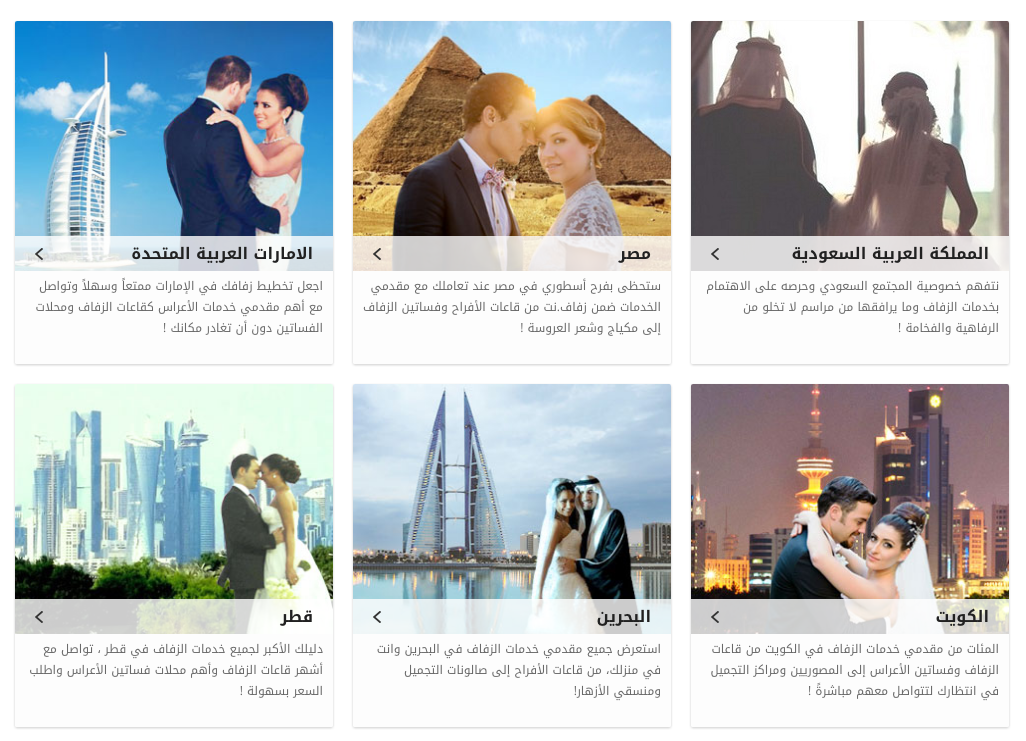Turkish wedding marketplace Dugun sets its sights on KSA with Zafaf.net

Turkish wedding marketplace Dugun sets its sights on KSA with Zafaf.net
It was the bras that ruffled some feathers.
CEO Emek Kirbiyik was plotting the expansion of his multimillion-dollar wedding startup Dugun into Saudi Arabia. The online marketplace connects brides-to-be and their fiancés with vendors for everything from venues and catering, to henna bride nights and lingerie - with photos to match.
“We got emails from Saudi people [saying], ‘Delete this right away,’ otherwise it’s going to be trouble,” says Kirbiyik. It was a crash course for the Turkish company in entering the Saudi market.
Dugun (pronounced “doon”) set its sights on Saudi Arabia after growing into Turkey’s dominant online wedding marketplace. In 2015, Dugun opened an Arabic-language site called Zafaf. It’s since expanded into 11 countries and plans to launch its first sales team in Saudi Arabia in early 2017.
Saudi Arabia’s high internet penetration made it an attractive target for Dugun, especially after research for Zafaf showed the Saudi wedding industry was not well-covered online. Unlike most Turkish couples, Saudi customers generally separate weddings by gender, which pushes costs higher still.
How it works
Customers on Zafaf can track their budget, build a website for guests, and search through the thousands of vendors who’ve joined the online marketplace. Every log-in shows a countdown to the wedding date, along with reminders for things like buying a dress or even starting a diet. As customers filter the options, their choices generate automated suggestions based on their preferences.

On the vendor side, Zafaf uses a freemium model: any vendor can create a profile, but it costs extra to advertise to larger audiences or get information about competitors.
The Turkey-Saudi connection
Although Zafaf was able to quickly delete the lingerie photos, other obstacles took longer to navigate. Since men working in Saudi cannot speak to female customers or vendors, Zafaf had to hire female sales representatives. Dugun’s Turkish sales force doesn’t rely on office space, but in some parts of Saudi Arabia, a mixed-gender sales team wouldn’t simply be able to meet up in a cafe. Respecting Saudi culture and adapting to local norms meant finding offices in Jeddah, Riyadh and Dammam, along with providing drivers for female employees to visit clients.
A crucial resource for building Zafaf has been employing Syrians who live in Turkey. Without them, Kirbiyik says, “We wouldn’t have enough Arabic speaking people to go there. That’s the benefit, even though [the situation is] really bad for Syrian people.” Kirbiyik says he’s been consistently impressed by the 15 Syrians he’s hired over the last five years.
Kirbiyik doesn’t think coming from a Muslim-majority country like Turkey gives Dugun a significant edge in entering the Arabic-speaking market. “Saudi is a very rich country, resources are excellent, and internet use is very high, but it’s a different world. So we need to adjust ourselves to fit in that culture.”
Building Zafaf has cost between $2-3 million so far. But the investment looks promising. Zafaf is already averaging 30,000 unique visitors a month from Saudi Arabia - and that’s without a sales team on the ground.
Origin story
Kirbiyik got his first taste of the online wedding industry firsthand in the US, where he managed a catering company’s website in Philadelphia. He launched Dugun in 2007, but it took until 2013 for the online marketplace to really take off. That year, investor Hasan Aslanoba put $2.1 million into the company, and an additional $1 million the following year.
The Turkish wedding empire is headquartered in a former publishing house in Istanbul’s Beyoglu district, tucked in the alleys behind the historic Galata tower. Inside the office are 60 employees, all serving Dugun’s share of the 600,000 people who get married in Turkey each year. “There are about 60,000 people a day coming to our wedding website,” he says, “and imagine, this is a niche business.”
Dugun was Turkey’s first online wedding marketplace, and it’s stayed a step ahead of its domestic competition by watching international sites like The Knot. Kirbiyik says, “We follow them really closely, we see those gaps and we close them here before anybody else.”
One feature he says they will never offer, however, is a wedding registry. Turks generally give gold as wedding gifts, and Kirbiyik says asking for specific items is a no-no.
Economic woes
As Turkey continues to struggle with a slowing economy, it’s brightened the spotlight on sectors that don’t depend on foreign investment or trade. Economic woes or not, weddings are big business in Turkey, and Istanbul will stay a constant competitor with Las Vegas to host the most weddings in the world. Russian sanctions may come and go, but a reception on the Bosphorus will never go out of style.
Feature image via Zafaf.


